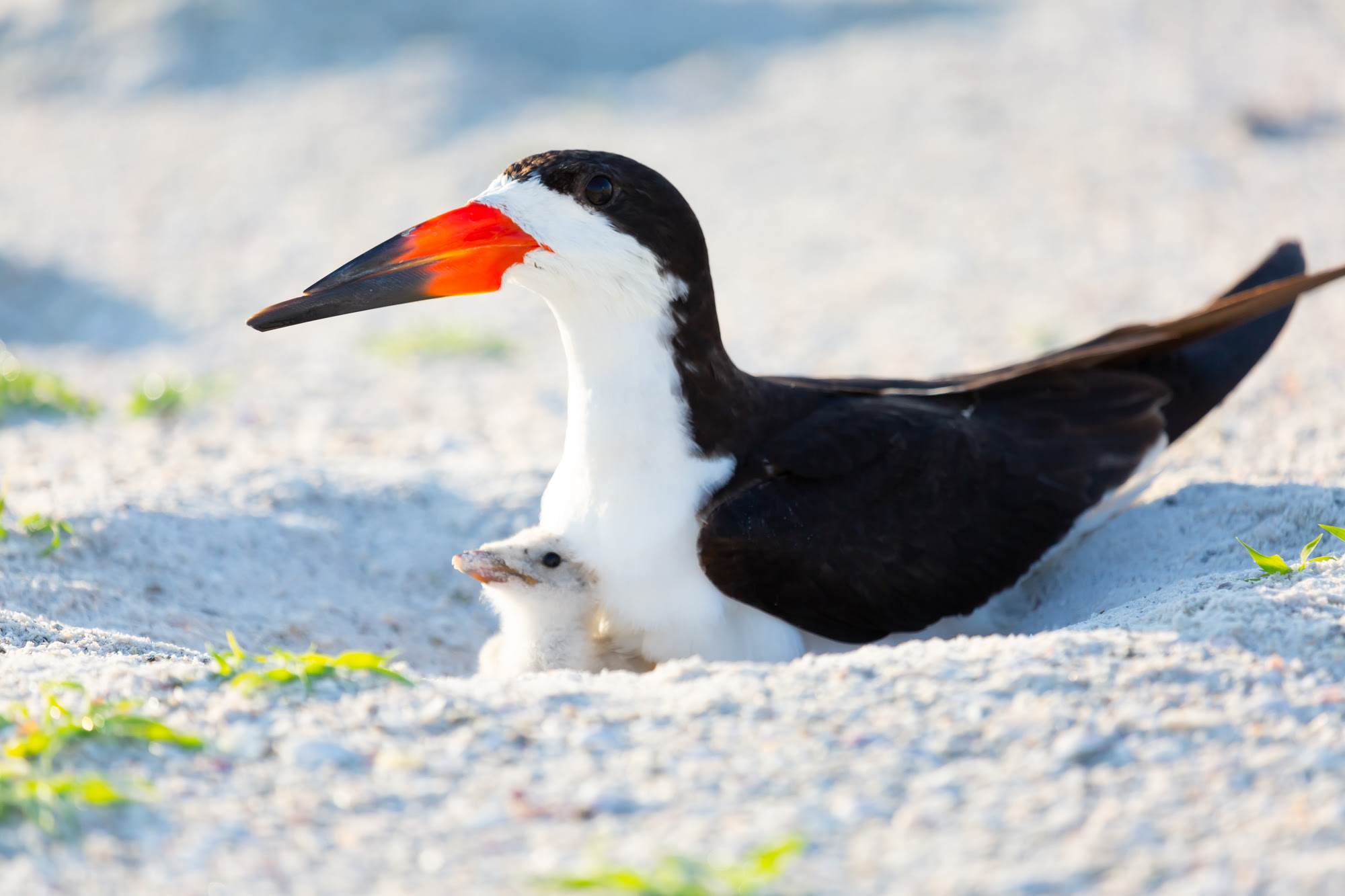With nesting season underway for shorebirds, seabirds and wading birds, the Florida Fish and Wildlife Conservation Commission (FWC) is sharing tips with beachgoers on how to help protect our waterbirds while enjoying the shore.
During this time of year, many shorebird and seabird species nest directly on beaches across the state where their eggs and chicks are well camouflaged in the sand. Colonies of wading birds, such as herons, will typically nest on mangrove islands off the coast.
Because our state’s beaches and shorelines are critical for waterbird nesting, people enjoying time near the shore can play a big part in their nesting success. Want to help? Follow these easy waterbird-friendly tips:
- Before you go, be in the know - check for Critical Wildlife Area closures. Whether boating or on land, watch for signs designating Critical Wildlife Areas on the beach or coastal islands – these areas are closed to public access to protect high concentrations of wading birds and shorebirds while they nest and raise their chicks. You can help nesting birds by giving space and keeping noise volumes low near CWAs.
- Beach-bound? Do the flock walk. Shorebirds and seabirds nest in shallow scrapes in the sand and their eggs and chicks are well-camouflaged, making them vulnerable to being stepped on. Help beach-nesting birds by giving them at least 300 feet of space and walking around – rather than through – bird flocks. Getting too close to nesting birds can cause them to fly off, leaving vulnerable eggs and chicks exposed to dangerous elements and predators. If you bring your pup to a dog-friendly beach, keep them on leash and away from nesting or resting birds.
- Stash any trash in proper trash or recycling bins. Garbage and food scraps attract predators, such as raccoons and crows, that prey on shorebird eggs and chicks. Litter on beaches and in the water can entangle birds, turtles and other wildlife. Beachgoers can help beach-nesting birds and other native wildlife by properly disposing of trash and removing personal gear from the beach before nightfall. If fishing, dispose of used line properly, as it can be deadly to waterbirds, sea turtles and other wildlife. To find a monofilament recycling station near you, visit myfwc.com.
For more information about nesting waterbirds, go to MyFWC.com/Shorebirds and download the “Share the Beach with Beach-Nesting Birds” brochure. Or go to the Florida Shorebird Alliance website at FLShorebirdAlliance.org to learn more about how to participate in shorebird and seabird conservation efforts.


No comments:
Post a Comment